Agents of SHIELD and Anti-Heroes: In Defense of Grant Douglas Ward
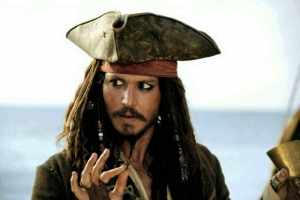
Just as a hero can be defined as a protagonist that holds heroic qualities, an anti-hero can be explained as a protagonist who lacks these heroic qualities, and often harbours dark personality traits within them. Classically, anti-heroes are imperfect heroes; heroes without selflessness, courage, or fortitude. Most often, they further blur the already blurred lines between heroes and villains. The traditional anti-hero is most often motivated by the belief that the end justifies the means. Does this mean that anti-heroes should be grouped with villains then, because they are missing these heroic qualities? Or, looking at the more important question, does this mean that these anti-heroes are undeserving of redemption? Redemption arcs have become extremely popular within many television shows, and especially within the MCU. Yet when Agents of SHIELD is concerned, the lack of a redemption arc for one of the most redemption-arc deserving characters is extremely disappointing. Grant Douglas Ward entered the show as a quiet, attractive, and guarded face, and left one of the most well-developed and complex characters the show had ever seen. Many consider him to be a villain, inside and out, yet others consider him to be an anti-hero and deserving of the redemption arc he never received.
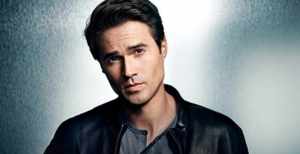
Ward spent the majority of his childhood being terrorized by his older brother, who forced him to do terrible things to his younger brother. His parents, blaming him for his older brother’s reign of terror, simply made things worse by pressing legal charges against him. He wasn’t raised in the kind of stable household that would have taught him compassion, love, and caring; instead, at the age of fifteen, he was turned out of his home and forced to trust the only hand that came to help him- the Hydra agent John Garrett. This turbulence meant that his morals never had a chance to properly develop; that though he does have them, he doesn’t know when the right time is to trust his morals, or his ‘gut instincts’, over his orders. He shoots above his dogs’ head instead of shooting the dog as he was ordered, yet instead of turning against Garrett when he becomes insane, stays with him until the bitter end. The development of Ward’s people skills, morals, and emotions was rapid and uncontrolled, yet they still did develop and contrary to popular belief he does have them, just not in the same ways as most people, leading him to have a different outlook on these ideas than most.
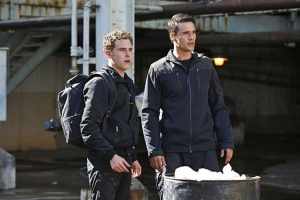
Viewers watched as Ward went from the person that “didn’t play well with others” to the person that became a brother to Fitz, a hero to Jemma, and a love interest to Skye. Genuine feelings for the people around him that had never before been seen. Even after he had been established as a Hydra agent, and was ordered to kill Fitz and Simmons, instead of sticking bullets into their defenseless skulls like a true villain would have, he drops them in an airtight crate into the sea, full-well knowing that they were some of the greatest minds the earth had ever seen and that they would be able to escape it. That was one of Ward’s smarter moves, because he knew that to his superiors, he had ‘taken them out of action’, and could claim it was a miracle that they escaped. In his own twisted way, Ward did genuinely cared about Fitz and Simmons, especially Fitz as a brotherly bond formed between them. It was this bond that led Fitz to always believe in him, and his faith never wavered until he saw living proof that Ward really had turned against them. Ward showed that brotherly bond by giving them a way out of the seemingly inescapable situation they were in- Ward had to dispense of Fitz and Simmons, but Ward cared about them too much to kill them, so he covered his own actions by dumping them in a sealed crate in the ocean, something he knew they would find a way out of. If Ward had been the villain everyone believed him to be, he would have straight up killed them and gone out for drinks afterward. Instead, Ward devised an ingenious plan to allow both their survival and his own, as his superiors would more than likely have killed him for his disobedience, proving his place as an anti-hero by virtue of compassion.
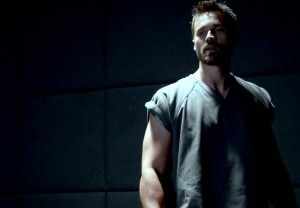
After Ward was captured by Agent May, he was placed in a holding cell in the SHIELD base. During that time, he attempted to take his own life, cutting himself, and even attempting to hang himself with his own shoelaces to escape the guilt he holds for his actions. A person has to be driven extremely far to even consider committing suicide, let alone actually attempting it, and they would have to have quite the depth of emotion to be able to conceive both of their past actions (in Ward’s case, Hand’s murder, and all the innocent people he killed and injured while he was under Garrett’s control) and their ultimate desire to escape these emotions via death. No true villain would feel the guilt of their past actions in any manner, let alone attempt to escape that guilt by suicide, which shows us that Ward simply is not the villain people consider him to be. Ward also talks to Skye, asking her for forgiveness, and giving accurate and true information to her, information that could potentially cripple Hydra, and information about the birth parents she had been searching for her entire life. Is that the action of a cold-blooded killer, or of a man who knows he has done wrong, and wants to be able to find some way to bandage the wounds he has created?
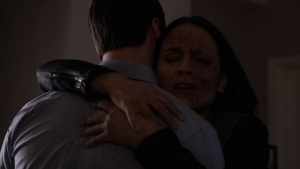
Post-escape, Ward decided he wanted to be a better man, and try and help people. He met Kara, an ex-SHIELD agent that had been captured and brainwashed into working for Hydra; her goal to avenge her suffering at the hands of both SHIELD and Hydra. Ward saw this as an opportunity to help her try and reach closure- to make a positive change in someone else’s life. In the only ways he knew possible which, admittedly, weren’t the best ways, he helped her take out her frustration on the organizations that ruined her life. Instead of trying to take his own revenge on SHIELD, and going solo to kill Coulson, he chose to try and help a fellow agent find peace in her mind after the atrocities that befell her. This proves that he has morals, and has a heart; that after all the bad he knew he had done, he tried to mend it with some good. No, his idea of good isn’t near the same as anyone else, but considering his upbringing and father figure, he was trying to the best of his abilities to help someone in a way that no one ever tried to help him. This attempt started, in viewers eyes, to give him the redemption arc they had been yearning for since the day he was revealed as Hydra- the redemption arc that the anti-hero truly deserved.
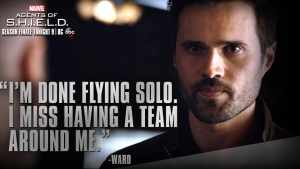
Yet instead of a redemption arc, they handed Ward another blow- a dead girlfriend, dead by his hand after a faulty disguise, and a new hatred for Coulson that couldn’t be contained. Instead of allowing Ward some small bit of happiness, the writers pushed him off the edge; with the fragility of his mental state, he had nowhere to turn but back to Garett’s teachings, and the pain and anger he had tried so hard to repress. This all changed, though, after he rejoined Hydra, and worked with Malik to bring the oldest inhuman back to earth. He believed he was working for a better cause, and that he would actually be able to make a positive change in the world that had done him so much wrong. Even in the face of utter despair, he managed to find hope that there was still some goodness. When Coulson captured him on the planet Maveth, he tries to explain to Coulson that he has changed, yet Coulson, so filled with anger over the girlfriend of his that Ward murdered, kills him when he is powerless and defenseless. This brutal end, brought about in such a non-heroic way was exactly what Ward didn’t deserve. After all the attempts he had put in to do some good, and all the pain and horror he had gone through, the good man in him deserved that redemption arc, deserved to die in a heroic way that changed the way the rest of the team thought of him; something that reminded him that through all his deeds, he was still a good man at heart. He deserved to end with something that reminded viewers of the good in him, not something that showed viewers the bad in Coulson.

When Daisy went off the edge, the team forgave her. When Coulson murdered Ward in cold blood, Fitz (the only member of the team to see the encounter) forgave him. When anyone in this show ever made a mistake that led to someone being hurt, injured, or even killed, they were forgiven. Except for Ward. Ward was held directly accountable for every action, no matter how small, and somehow, despite his good intentions and attempts to rectify his past mistakes, was passed over in this forgiveness; instead, suffered for everyone’s sins. With his character being given an extra season after his infestation by Hive, it’s highly unlikely that we will see Grant Ward again, which is extremely disappointing. Instead of using his character’s potential, the writers shoved him off, leaving his redemption arc in the garbage bin under their desks. After all, who deserves a redemption arc more than a man who was brought up in a detrimental environment, who tried to fix his mistakes and be a good man, and who faced everything he was dealt with his own sense of optimism that he may be able to do some good in the seemingly good-free world?
What do you think? Leave a comment.











Ward started terribly but got considerably more interesting once he became a villain. That being said, there can be Ward fatigue when he just doesn’t die.
He’s more interesting than many of his co-stars in the show, especially Daisy, Lincoln… and the reliably leaden Coulson.
I dropped agents of shield after watching only a few episodes.
As far as I’m concerned, the first half of “AGENTS OF S.H.I.E.L.D.” didn’t have a bad first half. The first half merely set up the characters and the story. This always happens with television shows that are also serial dramas – like “BABYLON 5”, “BUFFY THE VAMIRE SLAYER” and “ANGEL”.
The problem is that today’s television viewers lack the patience and appreciation for serial drama – especially in the sci-fi/fantasy genre. They want the main action to happen right away. This is not storytelling at its best.
I believe Grant will return at some point and as a nice guy trying to earn redemption.
Well-written article Danielle: )
Would have loved to see Ward become some sort of chaos element in the MCU doing things which no one can put together until it is finally revealed. Good or bad who knows? He is Ward that way.
He is a good villain.
Ward needs to develop into a corpse. But really he is fine as the leader of Hydra. Why does he need more.
I’m fine with anything they do with his character as long as he doesn’t become Taskmaster.
Ward is the best thing from the show since the reveal in season 1.
Part of the fun of a villain you love, is being able to secretly hope that maybe, one day, he will change his ways and become a good guy.
I think Ward has peaked. Just introduce an actual interesting villain and have Ward be a sidekick.
I seriously do not like the character on the show.
I think they should put him in ‘The Bin’ which sounds like it would be some sort of S.H.I.E.L.D holding facility but ironically would in fact just be a big bin.
I like the fact that ward give may a fight, i tired about the uber female action girl who always fight and defeat everyone without problem, ward fight against may and that make the result even better
This was everything I ever wanted out of a piece of television criticism.
Ward is The Worst, but by the end he became a Fascinating Worst instead of a Boring Worst.
It is nice to have an enemy that the audience, as well as the team, has an emotional tie to.
I admit, Ward’s Hydra status took me by surprise but after I picked my jaw up off the floor, I fell in love with the idea.
I personally believe Ward’s arc has faltered and continuously gets worse the more he is involved in the show. There are many new characters now to delve into. Leave Agent Ward in the past.
This is why I left a redemption story for him, that in 3 months has over 6000 hits, 68 chapters and almost 125000 words (and is still unfinished). See here: http://archiveofourown.org/works/7667887/chapters/17461567. I fall in love with Grant Ward!
Grant Ward was a pathetic man child, who did not know how to take responsibility for his actions. His attempt to apologize to his former teammates in late Season Two was the most pathetic apology I had ever witnessed.
Even when I thought he was a good guy during the first half of Season One, he struck me as one of those uber masculine types that bored the hell out of me. And I found his character to be a waste during Season Two. The show runners should have either killed him off at the end of Season One or hold off in exposing him as a HYDRA agent by mid-to-late Season Two.
As a supervillain, he was laughable. He was at his most interesting in late Season One, when the pathetic nature of his personality was exposed. Sure, he was a competent henchman. But as a supervillian . . . good grief, he was bad.
Amazing article 👏🏼 I couldn’t say it better! I sighn under every word of this article! I dropped watching the show after watching 4 episodes of s04 (Framework episodes) which were worthless attempt of the writers to right so many wrongs they’ve done to Grant Ward btw and also I fast-forwarded everything in s02-s03 without Ward in it. Grant Ward was the best character of AoS but the writers and team Coulson characters did him so dirty and extremely unfair!
Great article! I will put forward that Ward did also torture people, and with that I really don’t believe he is any sort of good person, but interesting perspective nontheless!